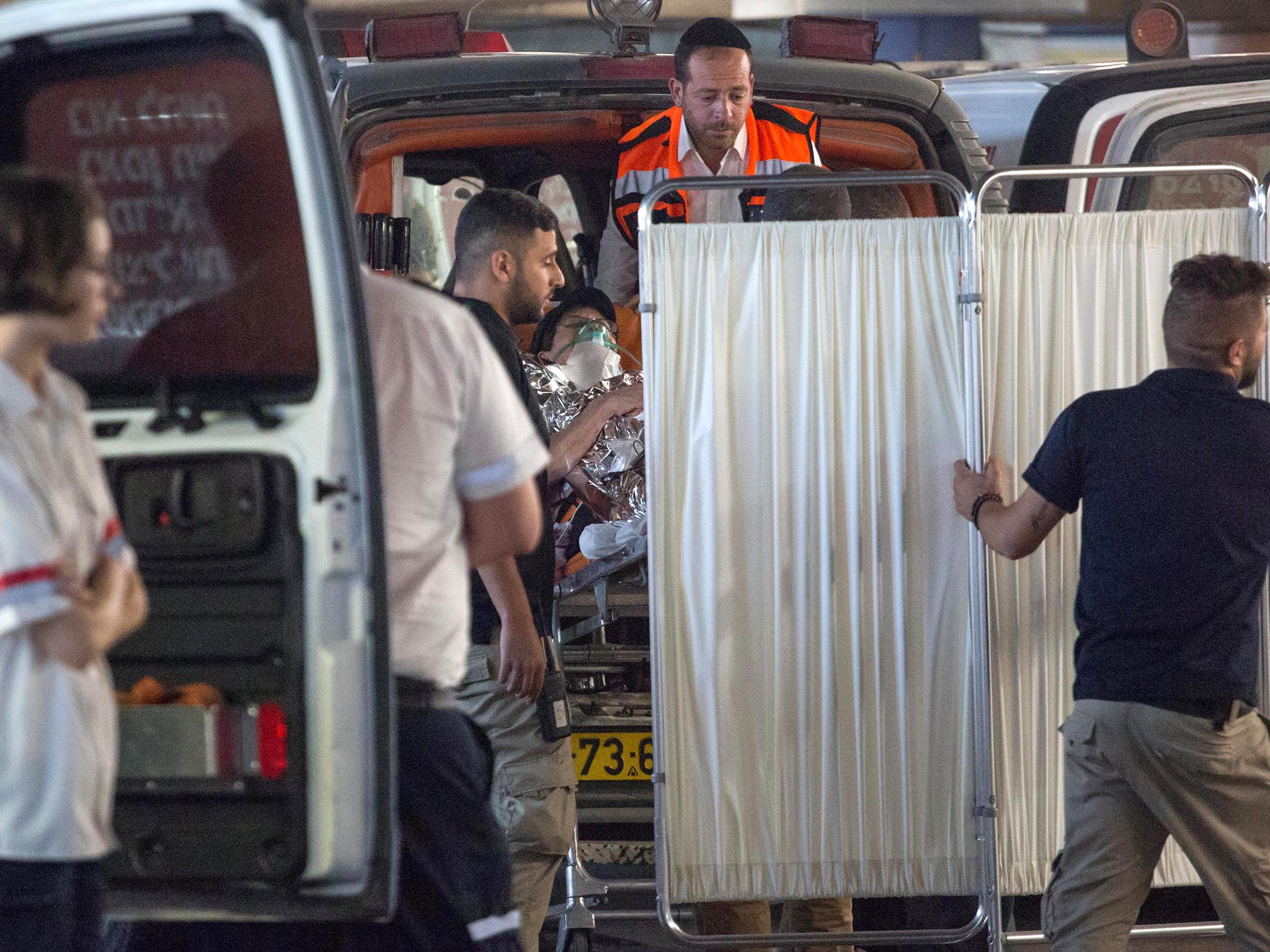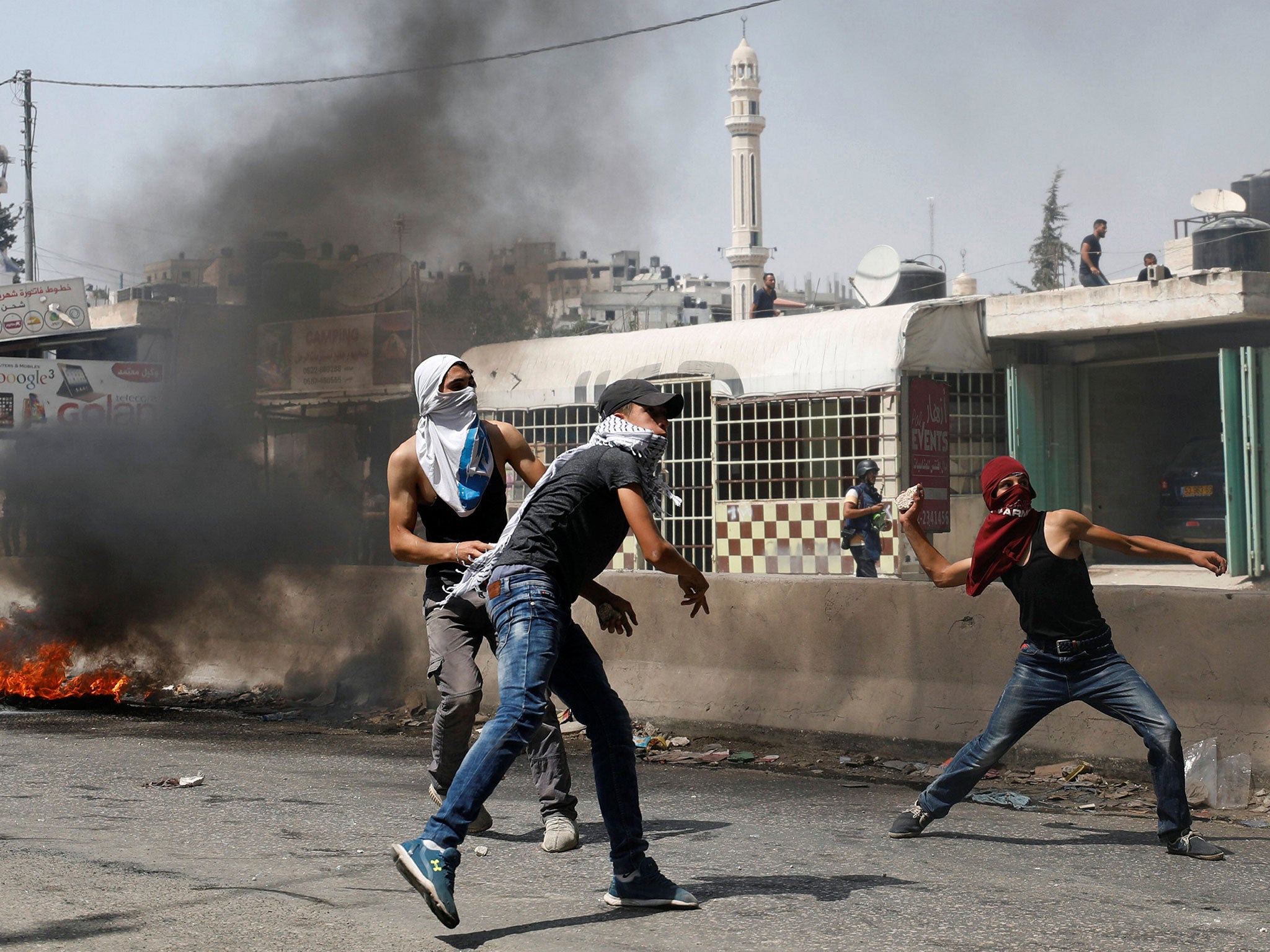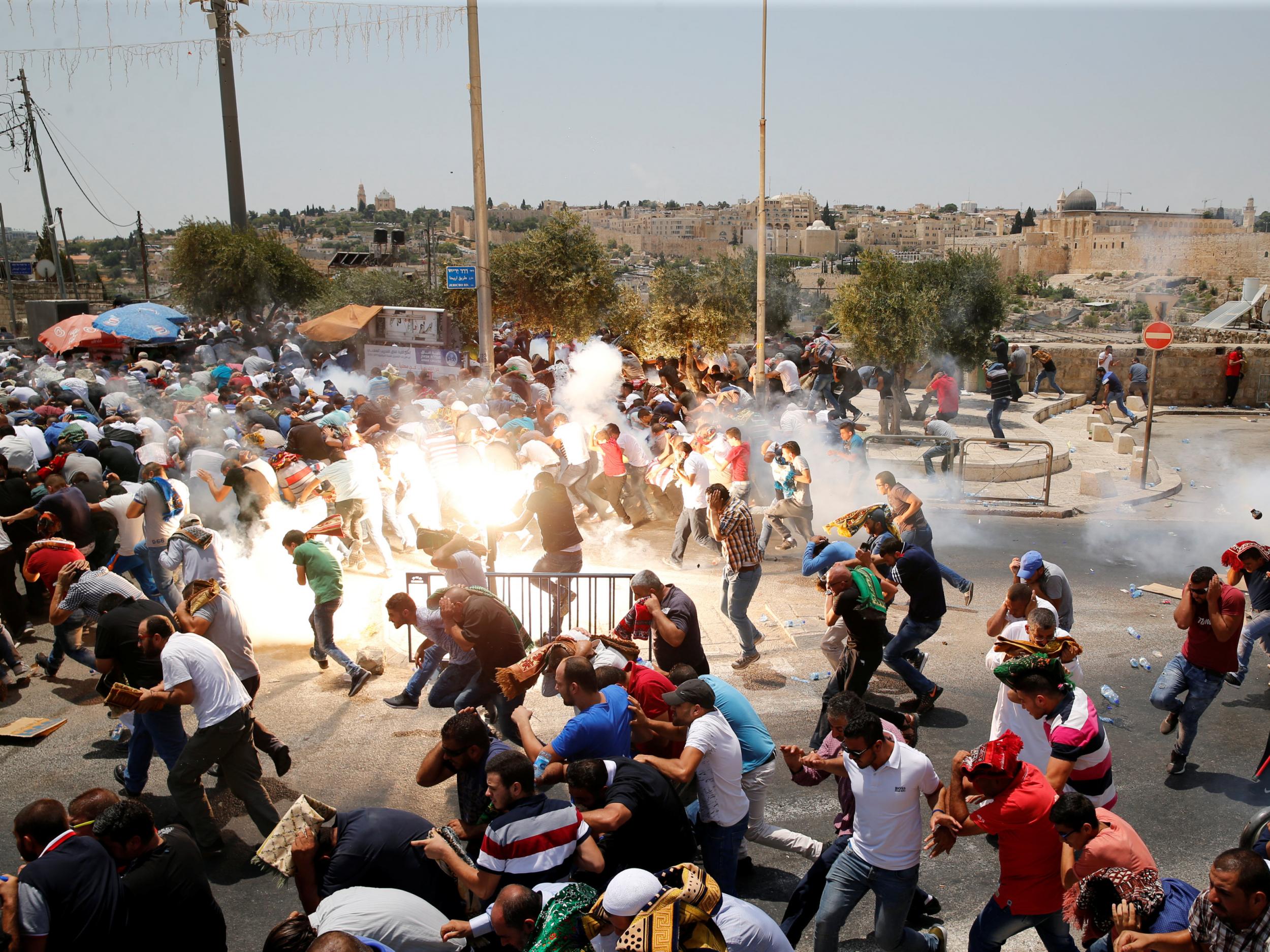Israel 'playing with fire and risking major crisis with Islamic world', Arab League chief warns
Israel sends extra troops to occupied West Bank as violence continues over installation of metal detectors at Noble Sanctuary/Temple Mount

Your support helps us to tell the story
From reproductive rights to climate change to Big Tech, The Independent is on the ground when the story is developing. Whether it's investigating the financials of Elon Musk's pro-Trump PAC or producing our latest documentary, 'The A Word', which shines a light on the American women fighting for reproductive rights, we know how important it is to parse out the facts from the messaging.
At such a critical moment in US history, we need reporters on the ground. Your donation allows us to keep sending journalists to speak to both sides of the story.
The Independent is trusted by Americans across the entire political spectrum. And unlike many other quality news outlets, we choose not to lock Americans out of our reporting and analysis with paywalls. We believe quality journalism should be available to everyone, paid for by those who can afford it.
Your support makes all the difference.Israel is “playing with fire and risking a major crisis with the Arab and Islamic world,” the Arab League has warned.
The warning came after Israel sent extra troops into the occupied West Bank as violence erupted over Israel’s installation of metal detectors at entry points to the shrine, known to Muslims as the Noble Sanctuary and to Jews as the Temple Mount.
A spate of violence has seen a Palestinian attacker stab three Israelis to death on Friday, with three Palestinians killed hours before.
“Jerusalem is a red line that Muslims and Arabs cannot allow to be crossed ... and what is happening today is an attempt to impose a new reality on the Holy city,” Arab League secretary-general Ahmed Aboul Gheit said in a statement.
“The Israeli government is playing with fire and risking a major crisis with the Arab and Islamic world.”
Arab League foreign ministers will hold emergency talks in Cairo on Wednesday, the group said in a statement.
On Friday, several thousand Palestinians clashed with Israeli security forces in the West Bank and in Jerusalem after noon prayers. Three Palestinians were killed and several dozen wounded after protesters burned tyres and threw stones and firecrackers. Israeli troops responded with live rounds, rubber bullets and tear gas.
Later on Friday night, a 20-year-old Palestinian identified as Omar al-Abed jumped over the fence of the Halamish settlement near Ramallah and entered a home, surprising a family that was celebrating a new grandchild during their traditional Sabbath dinner and stabbing three Israelis to death.
A neighbour, an off-duty soldier, heard the screams, rushed to the home and opened fire, wounding the attacker. TV footage showed the floor tiles drenched in blood, and officials called it a “massacre”.

On Sunday, Israel installed new security cameras at the entrance to the sensitive holy site, as officials began indicating it was considering “alternatives” to the metal detectors that set off a weekend of violence and raised tensions.
Israel set up the new security measures last week after Arab gunmen opened fire from the shrine, killing two Israeli policemen.
It said they were a necessary measure to prevent more attacks and were deployed routinely at holy sites around the world. But Muslims alleged Israel was trying to expand its control at the Muslim-administered site and have launched mass prayer protests.
Major General Yoav Mordechai, who heads the Israeli defence body for Palestinian civilian affairs, said Israel was open to alternatives to lower the tensions.
“The only thing we want is to ensure no one can enter with weapons again and carry out another attack,” he said. “We’re willing to examine alternatives to the metal detectors as long as the solution of alternative ensures the prevention of the next attack.”

However, the top Muslim cleric of Jerusalem, Mohammed Hussein, told the Voice of Palestine radio station he demanded a complete return to procedures that were in place before the initial attack at the shrine.
In a statement, the Islamic institutions in Jerusalem said they “affirm the categorical rejection of the electronic gates and all the measures of occupation”.
Disputes over the shrine, revered by Muslims and Jews, have set off major rounds of Israeli-Palestinian confrontations in the past.

Palestinian President Mahmoud Abbas announced he would “freeze” ties with Israel “on all levels” until the new security measures were removed. Halting security coordination with Israel would have far-reaching repercussions and could sharply raise tensions.
But Israeli defence minister Avigdor Lieberman said the security ties are more beneficial to the Palestinians anyway, and while Israel can live without them the Palestinians would suffer.
The United Nations Security Council plans to meet on Monday to discuss the bloodiest spate of Israeli-Palestinian violence for years. Sweden, Egypt and France requested the meeting to urgently discuss de-escalation in Jerusalem.
Additional reporting by agencies
Subscribe to Independent Premium to bookmark this article
Want to bookmark your favourite articles and stories to read or reference later? Start your Independent Premium subscription today.
Join our commenting forum
Join thought-provoking conversations, follow other Independent readers and see their replies
Comments